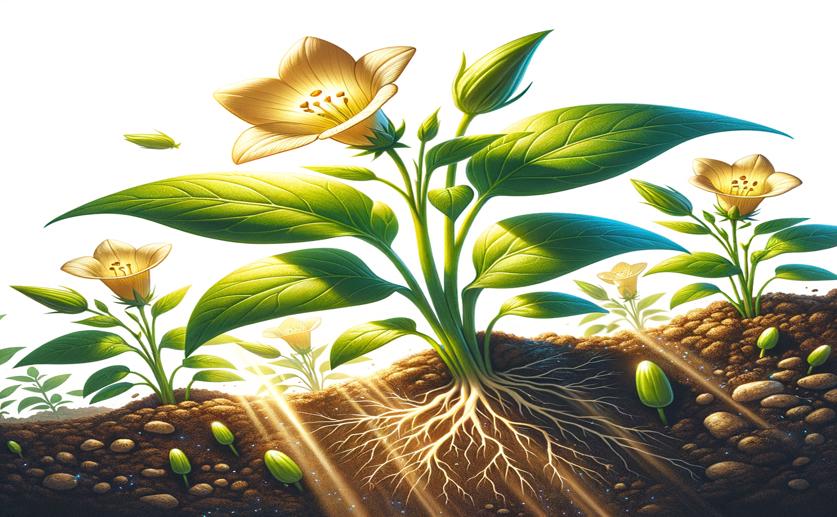
Boosting Quality and Growth of Bonnet Bellflower Seedlings
Jenn Hoskins
8th March, 2024

Image Source: Natural Science News, 2024
Key Findings
- In Gansu, soil fumigation with dazomet increased Codonopsis pilosula herb yield by 42.4%
- The treatment reduced root rot disease in the herb by 83.9% and improved plant health
- Effects varied by cultivar, with G2 showing the most significant improvement
AgricultureBiochemPlant Science
References
Main Study
1) Improvement in the quality and productivity of Codonopsis pilosula seedlings by dazomet soil fumigation.
Published 5th March, 2024
https://doi.org/10.1038/s41598-024-56093-3
Related Studies
2) Responses of Nitrogen-Cycling Microorganisms to Dazomet Fumigation.
3) Soil total carbon and nitrogen and crop yields after eight years of tillage, crop rotation, and cultural practice.
4) Evaluation of the combination of dimethyl disulfide and dazomet as an efficient methyl bromide alternative for cucumber production in China.



 27th February, 2024 | Jim Crocker
27th February, 2024 | Jim Crocker